Iran Claims Introduction Of New Missile Systems Amid Tensions
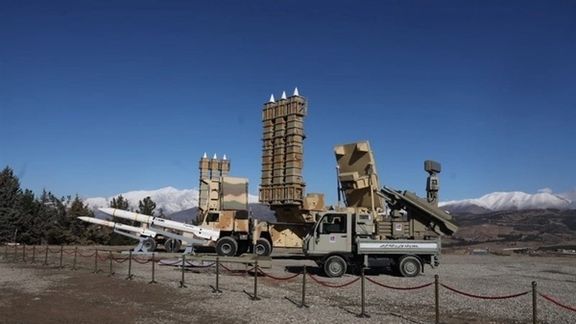
Amid international concerns, Iran on Saturday showcased new weaponry including the Arman anti-ballistic missile system and the Azarakhsh low-altitude air defense system.

Amid international concerns, Iran on Saturday showcased new weaponry including the Arman anti-ballistic missile system and the Azarakhsh low-altitude air defense system.
The unveiling ceremony for the two vehicle-mounted systems was attended by Iranian Defense Minister Brigadier General Mohammad Reza Ashtiani, as reported by the official IRNA state news agency.
"With the entry of new systems into the country's defense network, the air defense capability of the Islamic Republic of Iran will increase significantly," IRNA said.
It said the Arman missile system "can simultaneously confront six targets at a distance of 120 to 180 km", while the Azarakhsh missile system "can identify and destroy targets... up to a range of 50 km with four ready-to-fire missiles".
Iran often announces the introduction of new military technologies and weapons that is difficult to independently verify.
The claim comes amidst escalating tensions in the region, with Iran-backed Houthi militants in Yemen conducting a series of attacks on commercial and naval vessels in the Red Sea, in solidarity with Hamas. In response, the US targeted sites in Yemen and facilities of Iran-backed groups in Iraq and Syria. US military bases in Syria and Iraq have also been attacked, while Israel has carried out strikes on Iranian targets in Syria.
In June, Iran unveiled what officials described as its first domestically produced hypersonic ballistic missile, named Fattah, with a range of 1,400 km. Iran claims that its ballistic missiles serve as a deterrent and retaliatory force against the United States, Israel, and other potential regional adversaries.
Iran's nuclear program was constrained by the 2015 nuclear agreement, which the United States withdrew from in 2018, thereby prolonging the time required for Tehran to develop nuclear material for weapons.
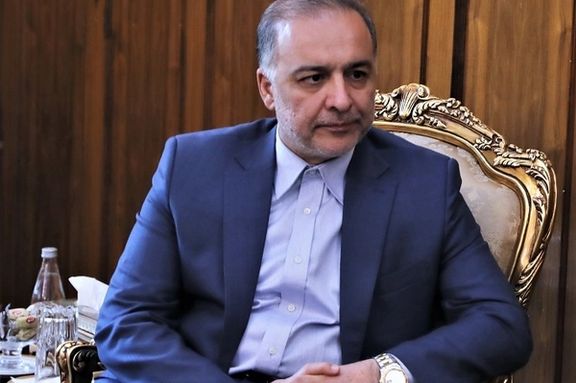
After warnings by Armenia of a fresh Azerbaijani military threat, Iran's Ambassador in Yerevan, Mehdi Sobhani, has reiterated Tehran's stance against any territorial alterations in the region.
In an interview with Armenpress, Sobhani emphasized, “The final position of the Islamic Republic of Iran is that we cannot accept a territorial change in any way. Any territorial changes should take place on the basis of mutual recognition of the territorial integrity of both countries, and this remains our final position...the territorial integrity of the countries of the region should be respected."
Expressing concern over regional stability, the Iranian diplomat stated that Tehran finds it “unacceptable” to witness a volatile situation around Armenia.
His comments come as tensions between Armenia and Azerbaijan continue to escalate. Armenian Prime Minister Nikol Pashinian on Thursday rejected Azerbaijan's persistent demands for legislative changes in Armenia, warning of potential "large-scale" military aggression from Baku.
Pashinian accused Azerbaijani leadership of pursuing a "policy of military coercion" to seize Armenian territory and extract concessions. He highlighted Azerbaijan's reluctance to demarcate the border, following a ceasefire violation that resulted in the death of four Armenian soldiers on Tuesday.
Azerbaijani President Ilham Aliyev on Wednesday maintained his stance, stating that he won't sign a peace treaty unless Armenia revises its legislation, which he claims contains territorial claims on Azerbaijan.
Amidst the tension, Iranian President Ebrahim Raisi reaffirmed Tehran's opposition to the presence of external powers in the South Caucasus during discussions with a senior visiting Armenian official.
Iran supports Armenia's stance against Azerbaijani requests for an extraterritorial corridor linking Azerbaijan to its Nakhichevan exclave via Syunik, the sole Armenian region sharing a border with the Islamic Republic.

British Foreign Secretary David Cameron has urged China to exert its influence over its ally Iran to put an end to Yemeni Houthis’ attacks on shipping in the Red Sea.
Camron made the call during his meeting with Chinese Foreign Minister Wang Yi on the sidelines of the Munich Security Conference on Friday, as Houthis continued firing missiles at commercial vessels.
In the meeting, Wang stressed the importance of “the convergence of interests” between London and Beijing, adding that the two sides can play significant roles to promote security and peace.
Yemeni Houthis launched their campaign to target shipping lanes in the Red Sea, the Gulf of Aden, and the Bab el-Mandeb Strait after Iran’s Supreme Leader Ali Khamenei in early November urged Muslims to initiate a blockade of Israel. Houthis claim they only target Israeli and Israel-bound ships, but the attacks have proven to be more random.
Though Iran has avoided any direct military involvement in the Israel-Hamas conflict, the regime has used its proxy groups such as Houthis and Hezbollah to attack Israeli and American targets in the region.
The US State Department announced on Friday that a missile hit an India-bound oil tanker in the Red Sea.
The vessel identified as M/T Pollux was struck with a missile launched from the Yemeni territories, the State Department added. The Panamanian-flagged tanker was carrying crude oil, the report added.
"This is yet another example of the lawless attacks on international shipping, which continue after numerous joint and international statements calling the Houthis to cease," remarked a State Department spokesperson.
Yemeni Houthis claimed responsibility for the attack on Saturday, saying the oil tanker was owned by Britain.
“The naval forces of the Yemeni Armed Forces carried out a targeting operation against a British oil ship (Pollux) in the Red Sea with a large number of appropriate naval missiles, and the strikes were accurate and direct,” read a statement issued by the Houthis’ military spokesperson Yahya Sarea.
Meanwhile, AFP reported that the EU next week will officially announce the launch of the bloc’s naval mission in the Red Sea as part of the international campaign to stop the destabilizing actions of Iran-backed Houthis.
Germany, Belgium, France and Italy have agreed to contribute vessels to the mission, which is termed Aspides, meaning shield in Greek. At least four vessels are to take part in Aspides, an EU official said.
“The overall commander of the mission will be Greek, while the head officer in operation control at sea will be Italian,” the EU official went on to say.
The United States also launched in December a multinational naval coalition in the Red Sea to protect trade vessels. According to Reuters, 20 countries, including Britain, Norway, Seychelles, France, the Netherlands, Australia and Italy, have joined the coalition.
Amid mounting international pressures on Iran’s proxy group, the US Department of Treasury announced that Washington’s sanctions against Houthis as a Specially Designated Global Terrorist (SDGT) have been officially enforced on Friday.
Last month, the Biden administration listed Houthis as Specially Designated Global Terrorist in response to the group’s rising threats in the region. Washington, however, has not decided yet to include Houthis in the list of foreign terrorist organizations (FTO).
The Biden administration delisted the Houthis in 2021 as both a foreign terrorist organization and as a specially designated global terrorist entity.
On January 10, the UN Security Council passed a resolution, calling on Houthis to stop attacks on shipping immediately.
Two days after the resolution was approved, the US and UK targeted dozens of Houthis’ sites in Yemen. The two countries have launched several other rounds of preemptive offensives against the group’s targets in Yemen in an attempt to decrease its military capabilities.

PEN America has issued a strong condemnation following the sentencing of Sepideh Rashno, a young Iranian writer, poet, and outspoken critic of Iran’s mandatory hijab law.
Rashno, who gained attention after a viral video captured her in a scuffle with a government hijab enforcer in 2022, had her sentence of three years and 11 months in Evin prison enforced on Thursday.
“Writers and artists such as Rashno play a pivotal role, not only by calling out injustices and amplifying the public’s desire for change but also by inspiring everyone to dream of a brighter future grounded in human rights and where women can freely make choices about what they wear,” stated Liesl Gerntholtz, PEN/Barbey Freedom to Write Center director at PEN America.
Rashno’s journey through the Iranian legal system has been marked by controversy. Concerns were raised over a televised confession where Rashno appeared with bruises on her face, sparking allegations of coercion. Despite being released on bail in June 2023, Rashno faced a series of charges, including “propaganda” and “encouraging promiscuity,” culminating in her recent sentencing.
Her case is emblematic of the broader struggle against forced hijab in Iran, a movement catalyzed by the death of Mahsa Amini in 2022. The opposition to mandatory hijab has become a symbol of the Woman, Life, Freedom protests.
Iran’s crackdown on writers is highlighted by PEN America’s Freedom To Write Index, which reported at least 57 Iranian writers arrested in 2022, making Iran the second-highest jailer of writers globally, following China. Furthermore, Iran leads in the incarceration of female writers.
PEN America said it continues to advocate for Rashno’s release and urges the Iranian government to respect freedom of expression and human rights.
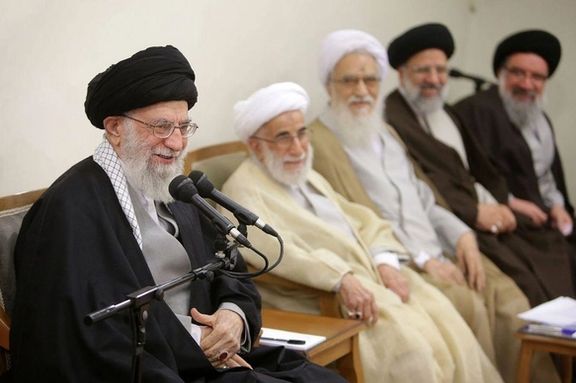
Less than two weeks before elections in Iran, 35 of the 88 members have decided not to run for the Assembly of Experts, which is tasked to select the next Supreme Leader.
Lotfollah Dejakam, the Friday prayers Imam of Shiraz has said that the 35 men have realized that they are too old for the Assembly's membership and that they have decided to leave the task to younger clerics.
The AoE has always been a predominantly elder's assembly and photos from the previous and current rounds of the assembly show elderly clerics dozing off during meetings.
Although in the Iranian press the Majles (parliament) elections is in the spotlight, the Assembly of experts election which will be held on the same date, March 1, is the one which is more important as its results affect the fate of succession and post-Khamenei Iran.
On Wednesday, Mohammad Emami Kashani, a 92-year-old senior cleric of the Assembly was said to have been disqualified from running. But reports on Thursday said that Emami Kashani has withdrawn his candidacy because of his medical conditions.
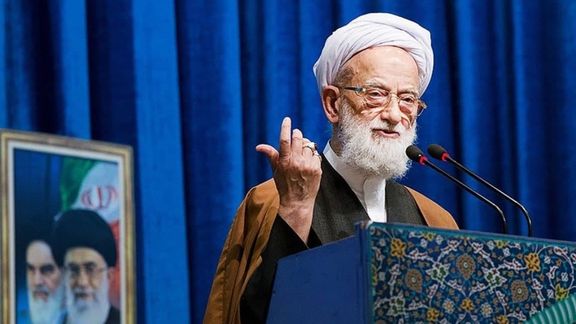
Earlier, Ahmad Jannati, the oldest member of the Assembly at 97 declared his withdrawal from the competition although he still retains his extremely significant post as the Secretary of election watchdog Guardian Council.
Mostafa Faghihi, the editor of centrist Entekhab news website had said that Jannati and others' withdrawal from the Assembly of Experts elections is part of a possible project to pave the way for President Ebrahim Raisi's chairmanship at the new round of the Assembly.
Other observers have also said the same about the withdrawal of dozens of senior clerics from the competition, stating that they would not want to have a relatively younger and definitely less educated cleric as their superior at the Assembly.
Still others believe the dynamics is being furthered by Supreme Leader Ali Khamenei who wants to be in control of the assembly's leadership. He is also said to prefer to have Raisi as the Chairman of the Assembly so that Raisi could become the next supreme leader or play a key part in naming Khamenei's son, Mojtaba as the successor.
According to a report published by Khabar Online website, hardline clerics in Tehran and Qom have reached an agreement about the list of 11 candidates for Tehran. The clerics in Qom and Tehran gave a list of 16 candidates each, but 5 of the candidates in each list are not on the other group's list. Still this partial agreement among conservatives is interesting as they have not been able to react to a consensus over their lists in the previous three rounds of the Assembly election.
All the 11 candidates shared by Tehran and Qom clerics are middle-aged mullahs previously trusted by Khamenei. They include former Intelligence Minister Ghorban Ali Dorri Najafabadi, Seminary Dean Alireza E'rafi, and Islamic Propaganda Office Chairman Mahmoud Mohammadi Araghi.
The five candidates exclusive to Tehran clerics' list are led by former hardliner prosecutor Ali Razini, but all the five on the Qom clerics' list are less known and relatively younger clerics.
Critics in Iran say that now, even without an election on March 1, the ideal scene is set for Khamenei's favorite clerics to enter the next Assembly of Experts under Raisi’s chairmanship without any challenge when the time comes later this summer.
In the meantime, to save Raisi the embarrassment of being the only candidate in South Khorasan for the region's only seat at the Assembly, the Guardian Council endorsed a hitherto unknown cleric out of the blue to be the second candidate from the remote constituency. However, everyone in Iran knows how the rest of the process works to ensure that Raisi wins the competition if there is a competition at all. This process is what Iranian electioneers call engineering; something in between election rigging and grafting.
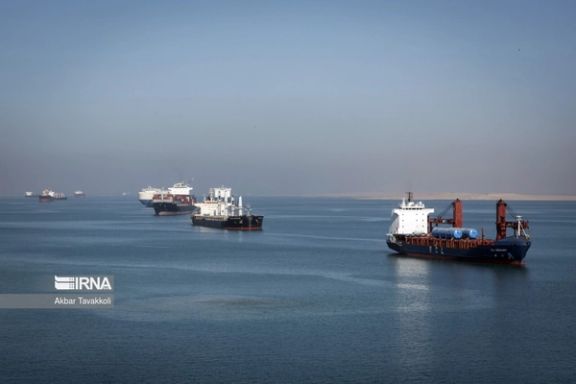
An Indian-bound tanker carrying crude oil has been attacked with a suspected Houthi missile in the Red Sea on Friday, the US State Department announced.
"This is yet another example of the lawless attacks on international shipping, which continue after numerous joint and international statements calling the Houthis to cease," a state department spokesperson said.
Earlier the United Kingdom Maritime Trade Operations (UKMTO) agency and British maritime security firm Ambrey said a Panama-flagged tanker had reportedly been hit 72 nautical miles (133 km) northwest of the port of Mokha, off Yemen.
"The vessel experienced an explosion in the vicinity of the vessel and reportedly sustained minor damage. The crew was reported safe and unharmed," Ambrey said.
Another vessel three nautical miles to the northeast of the tanker was observed altering course to port, away from the tanker, Ambrey added.
Yemen's Iran-backed Houthis have said they will press on with attacks on Red Sea shipping in solidarity with the Palestinians, as long as Israel continues to commit "crimes" against them.
"Our operations have a big impact on the enemy which constitute a great success and a real triumph," Houthi leader Abdulmalik al-Houthi said in a televised speech on Thursday.
The attacks on ships have disrupted global commerce, stoked fears of inflation and deepened concern the Israel-Hamas war could spread.
(Reuters Report)